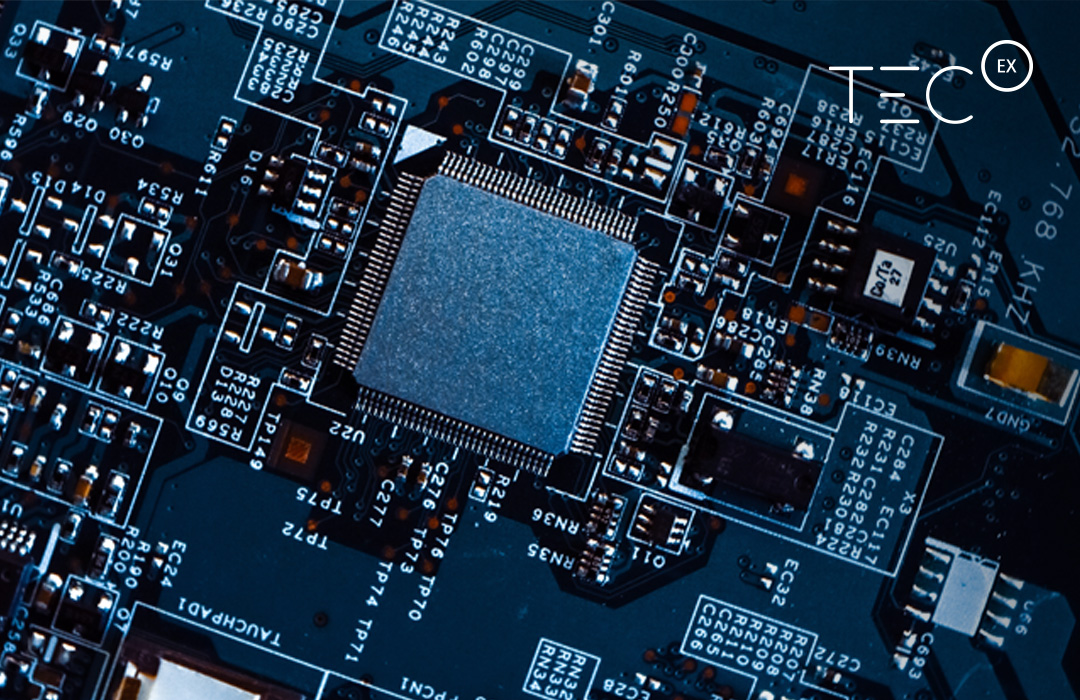The Challenges
Our Solution
Our client had a time-sensitive shipment and ambitions to expand to Iceland to join the AI revolution in the Nordics. Shipping AI chips from the US required meticulous compliance checks to ensure seamless passage through Icelandic customs.
With extensive experience importing AI chips into Iceland, we knew the physical logistics would be challenging, but the complex import regulations would be the main hurdle.
Overall, we needed to:
The Result
“Despite a complex trade landscape and rapidly changing tariffs and regulations, our expert handling ensured smooth customs clearance without delays or unnecessary duties.”
– Melissa Tees, AI Branch Operations Manager at TecEx
Navigating Iceland’s Import Regulations for AI Tech
Importers planning logistics to Iceland often have to choose between expensive air freight and time-consuming sea freight. Even once they reach the island, shipments must navigate inconsistent, extreme temperatures. For AI chips, there’s an additional risk of cargo damage or the mishandling of goods destroying the gear.

Complexities of AI Chips and Product Classification
Product classification is often overlooked as a simple administrative obligation, but it’s actually a critical decision point that can determine whether a shipment clears customs seamlessly or triggers a legal crisis.
AI gear, like all goods, is classified under HS codes. These codes usually differ depending on the tech’s function, form, and composition. Think of an electronic integrated circuit (HS code 8542) versus a component like a transistor (HS code 8541). Slight changes in these codes can trigger significant changes in tariffs, duty rates, and import license requirements.
The rapid changes in AI technology make it difficult for customs authorities and classification codes to keep up. Importers must use the most up-to-date, accurate, and compliant HS code to reduce the risk of over- and underpayment of duties, fines, and even the seizure of goods. In addition to these penalties, the delays, reputational damages, and financial losses can erode a company’s competitive edge.
Custom-built, specialized AI chips are particularly difficult to classify correctly. Fulfilling this requirement correctly was vital to facilitating seamless customs clearance as well as ensuring we had the correct permits and calculated accurate duties.
Due to the time sensitivity and complex regulations for our client’s shipment, they decided the most efficient route would be for TecEx to manage the project and logistics from end to end with our white glove delivery solution.
AI Diffusion Rule Uncertainty
Alongside geographical and regulatory challenges, this shipment required us to stay on top of the AI Diffusion Rule. While the new administration rescinded the complex export controls just before they were due to be enforced, proactively tracking new and changing trade regulations is vital for smooth shipments across borders.
This rule could have significantly impacted the compliance process because the AI chips were being exported from the US. Documents like the Certificate of Origin are critical in determining where tech components and their materials originate and whether export controls like this apply to them.

Iceland as an AI and Data Center Hub for Europe and the Globe
Iceland has seen substantial growth in its AI industry, with its data center market volume predicted to reach $114,21 million by 2029. But what has given rise to this?
As a Nordic island with cool temperatures year-round, Iceland has many natural advantages as an AI and data center hub.
Some of the benefits leading AI pioneers to expand into Iceland include:
- Natural cooling from the climate,
- Affordable power from 100% renewable resources,
- Strict data privacy laws that enforce secure data handling,
- Reliable connectivity via four undersea cables with low latency, positioning it to service the EU and the world,
- Close ties with Europe as a member of the EFTA and EEA.
End-To-End Project Management for Seamless AI Chip Deployment
Full trade compliance with Iceland’s regulations was vital to getting our client’s AI chips to their data center on time. Once we’d completed a full compliance sweep of GPU trade requirements and prepared the necessary import licenses with accurate HS code classification, we needed to
Move the AI from the US to Iceland using a chartered flight.
Load the tech onto temperature-controlled trucks to protect them from the climate.
Manage logistics up to and including the last-mile delivery to get the AI chips to their data center.
How Did We Keep the AI Chips Secure?
We implemented tilt sensors and complete surveillance for the entire shipment. This allowed us to track the movement of the goods from end to end, keep on top of issues if they did occur, and offer our client peace of mind with complete visibility and transparency of the import process.
Once the gear arrived in Iceland, our dedicated in-country team accompanied the goods and assisted customs with their inspection, ensuring the tech would not be mishandled or damaged.
The AI chips were loaded onto specialized temperature-controlled trucks to protect them from the extreme elements of Iceland on their journey to the data center.
With TecEx managing the logistics and project, this specialized solution facilitated:
- Full compliance with all export and import regulations,
- Correct HS code classification for smooth customs clearance,
- Protection from the elements and end-to-end visibility of the shipment for reduced risk of cargo damage,
- Low risk of customs mishandling the goods, and
- Fast-tracked logistics to prevent delays.
TecEx for End-To-End AI Chip Logistics Management
At TecEx, we have the experience to expertly manage AI chip supply chains and seamlessly navigate import and export regulations. Whether HS codes or project delays are inhibiting your global AI expansion, we can streamline your shipments and ensure full trade compliance with end-to-end logistics and project management.
Looking to Import AI Chips?
Get in touch to deploy your AI chips to over 200 destinations with the ultimate import solution.







